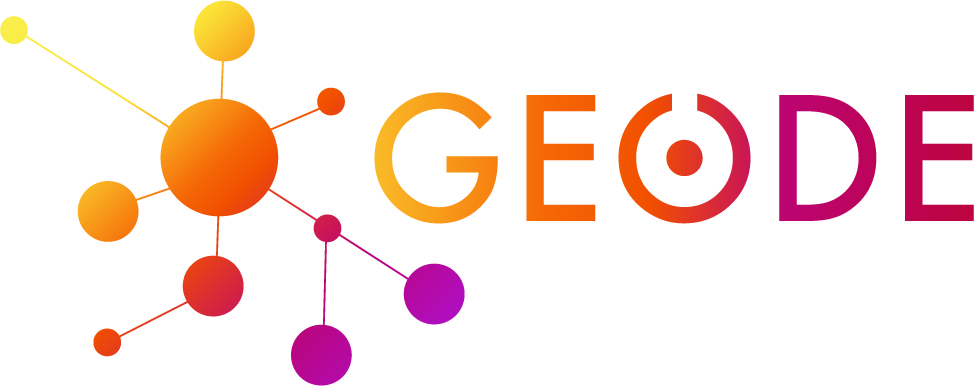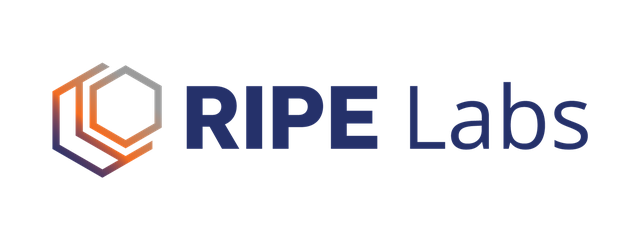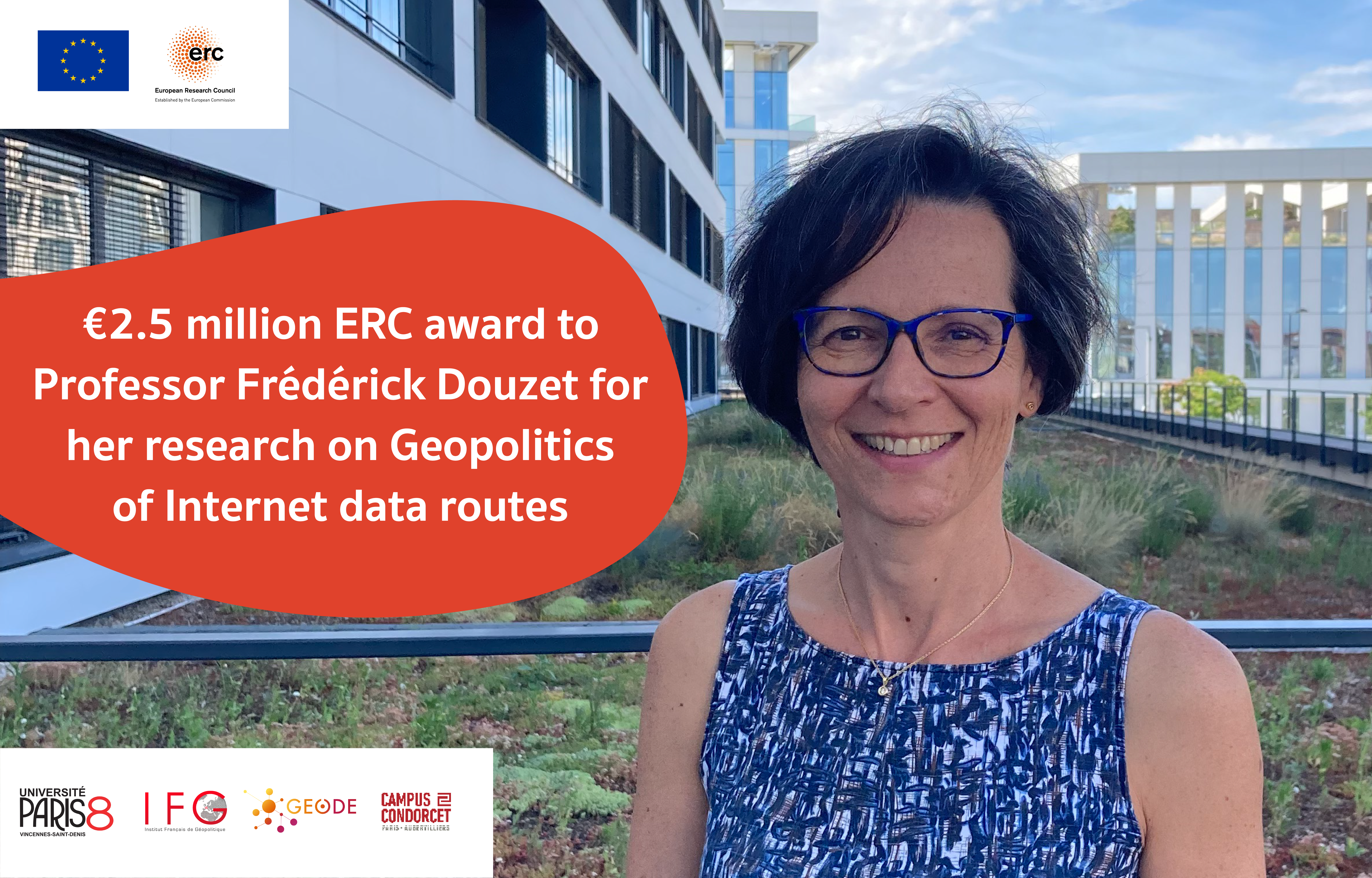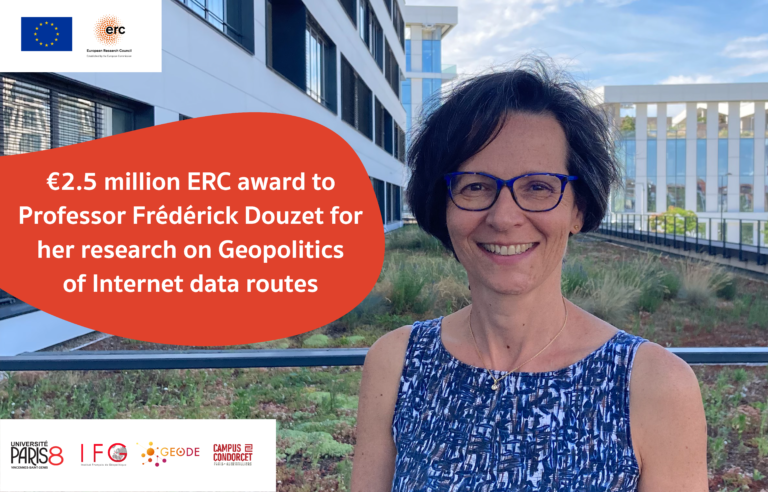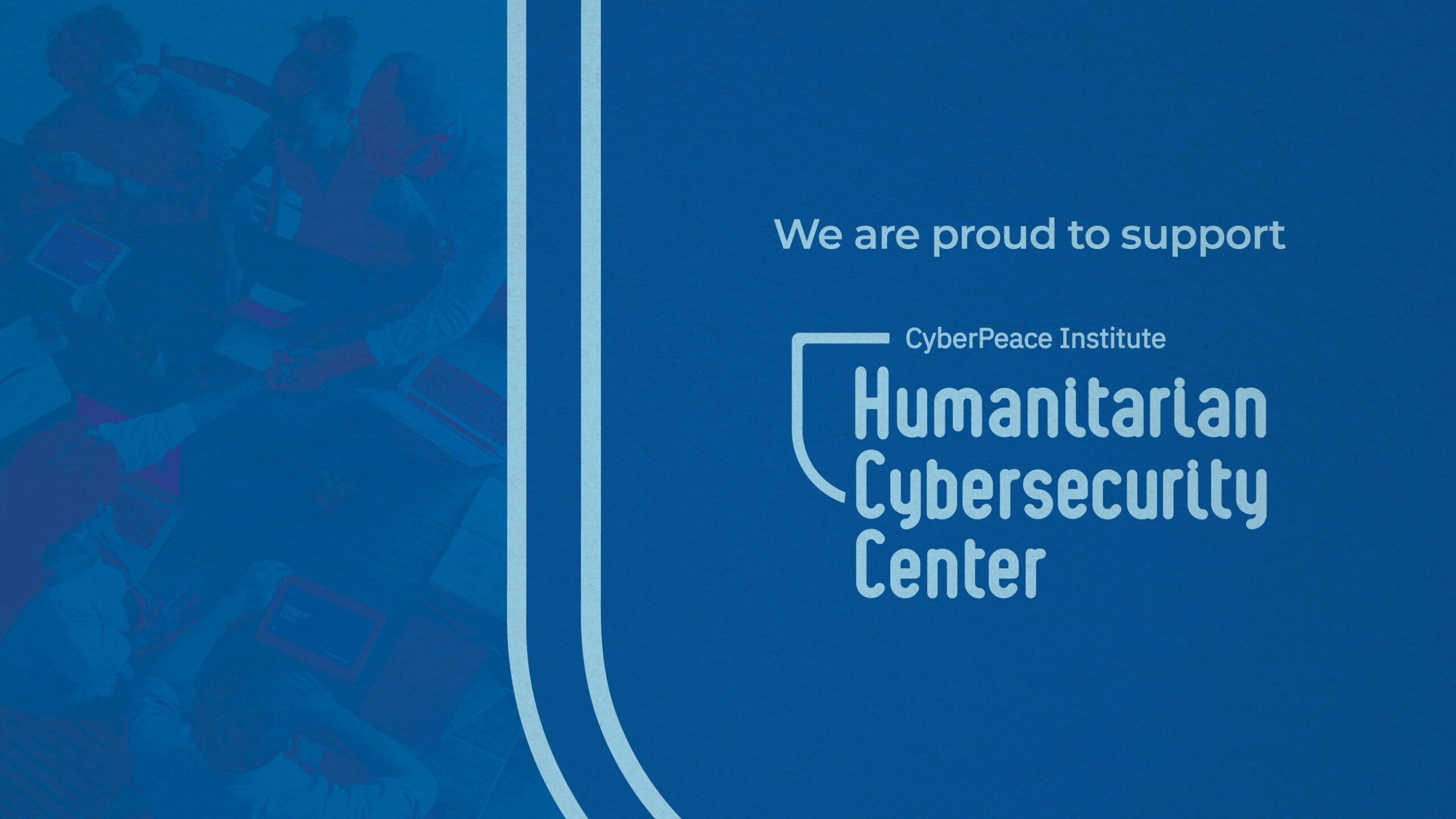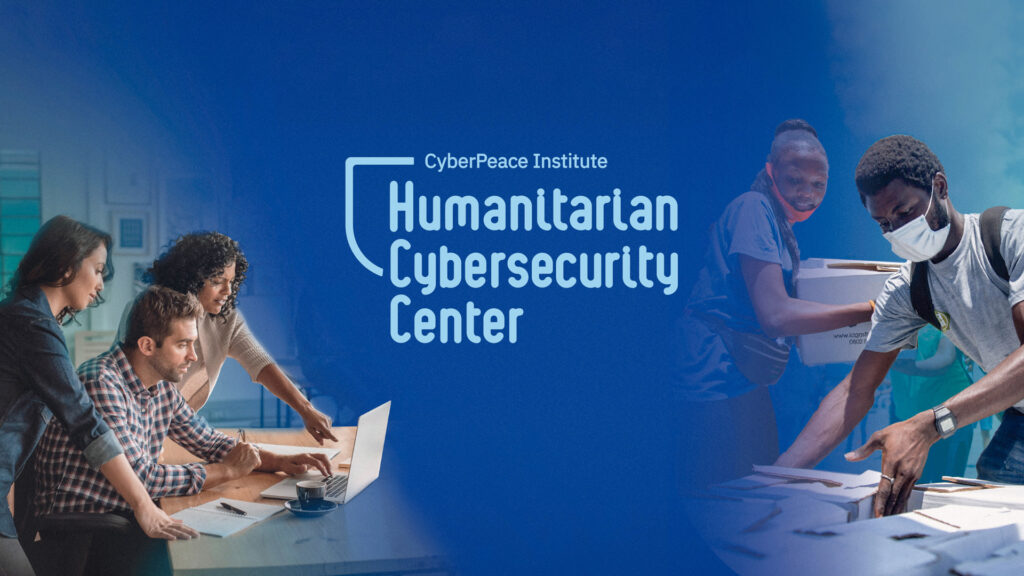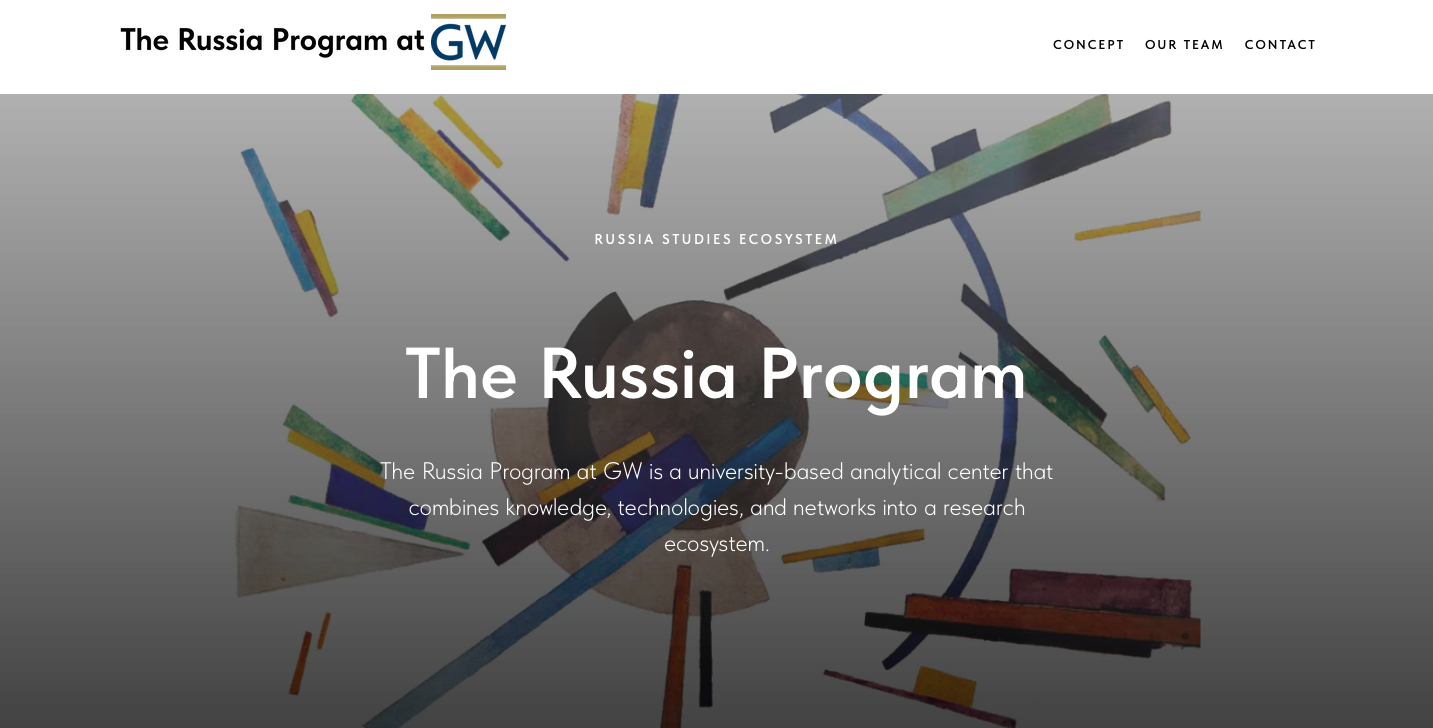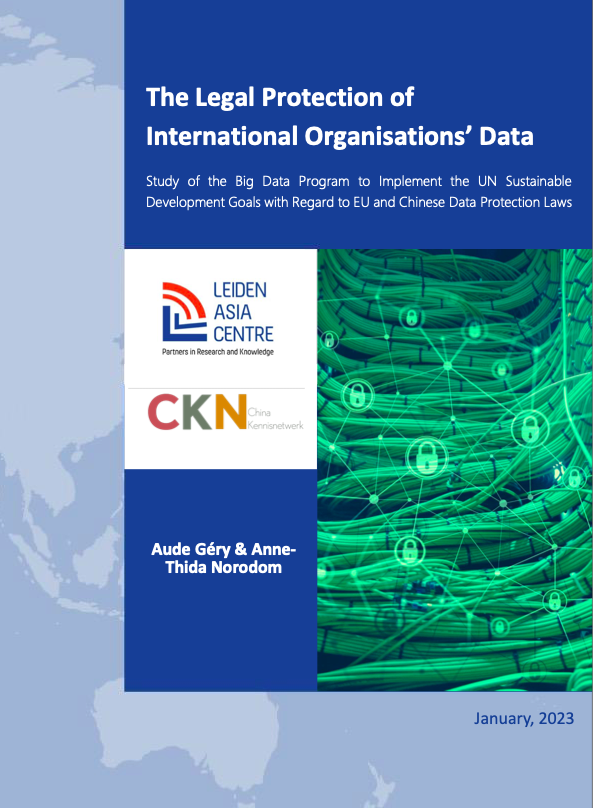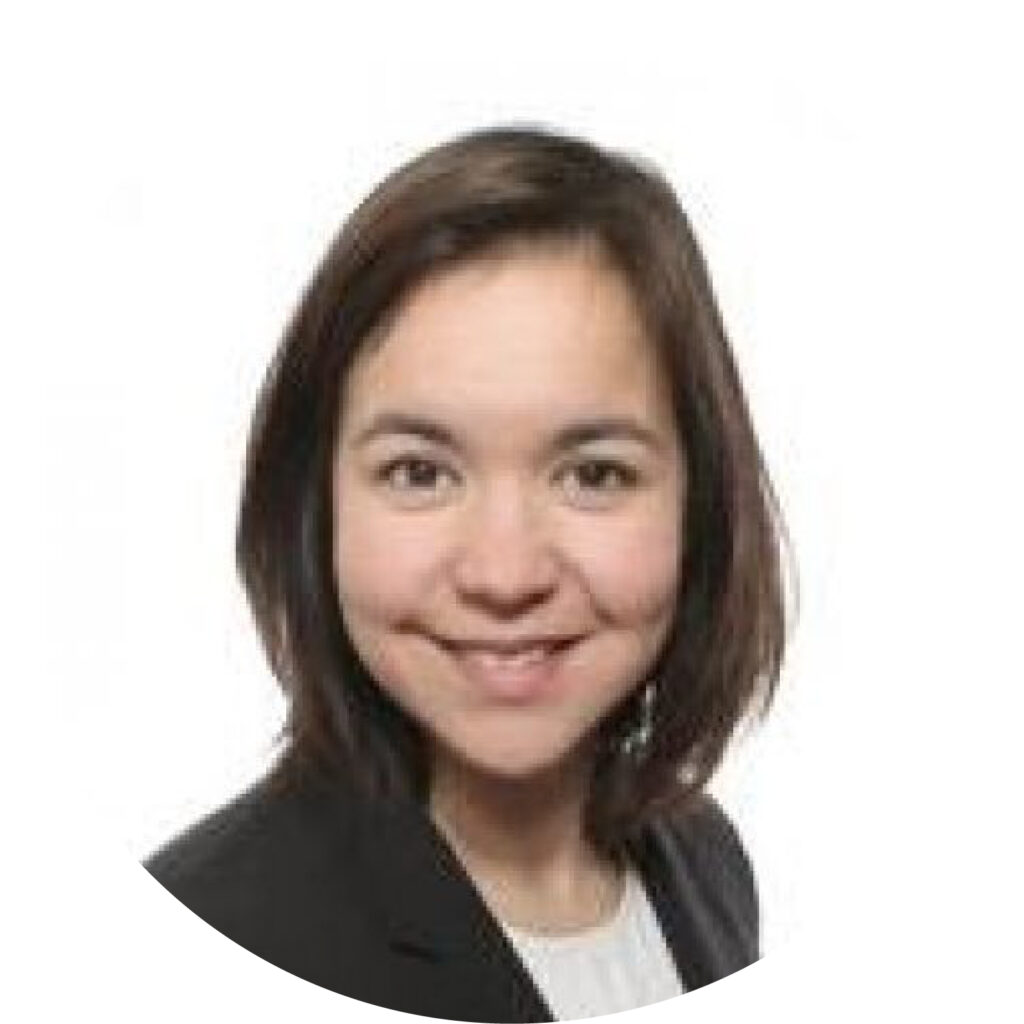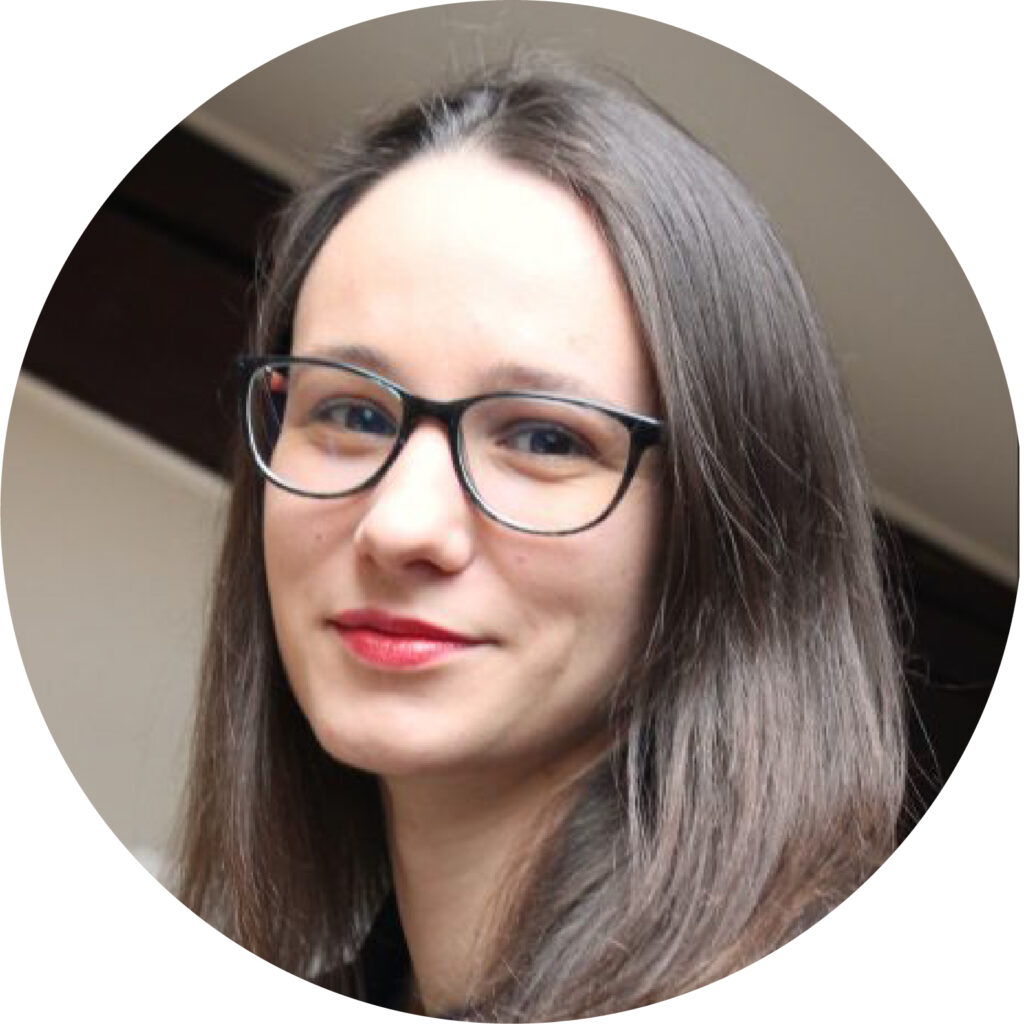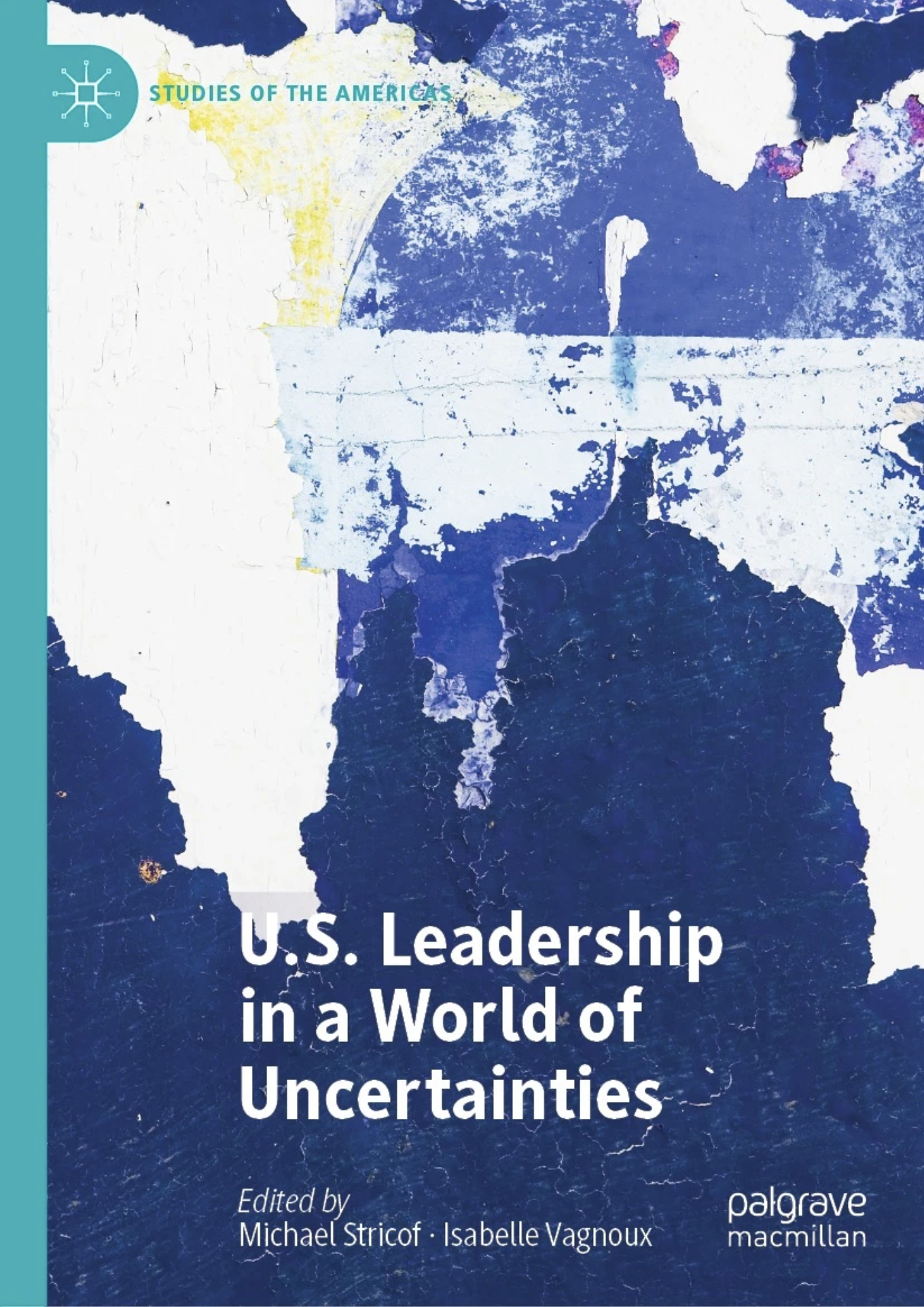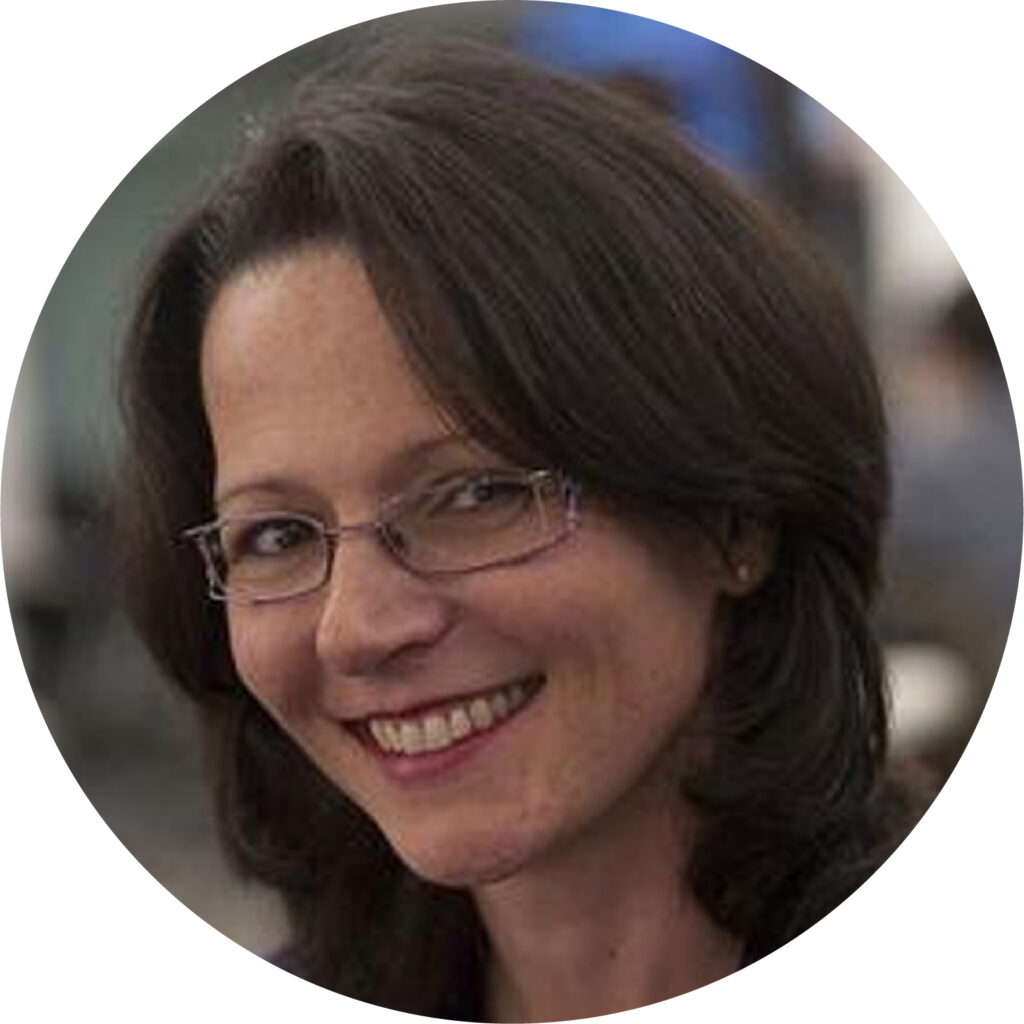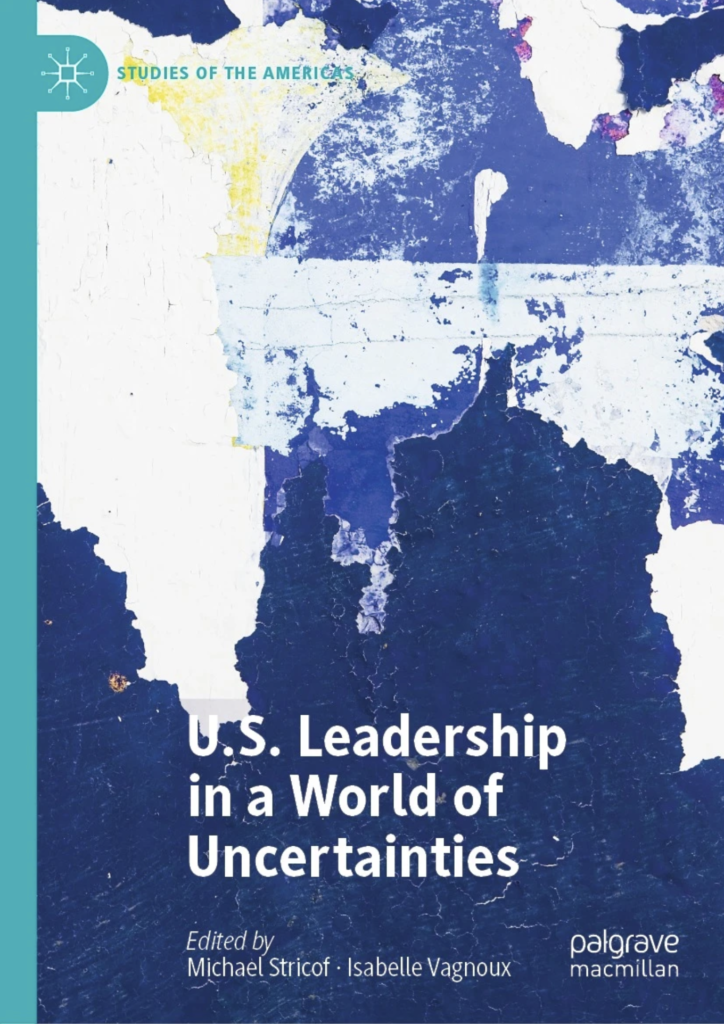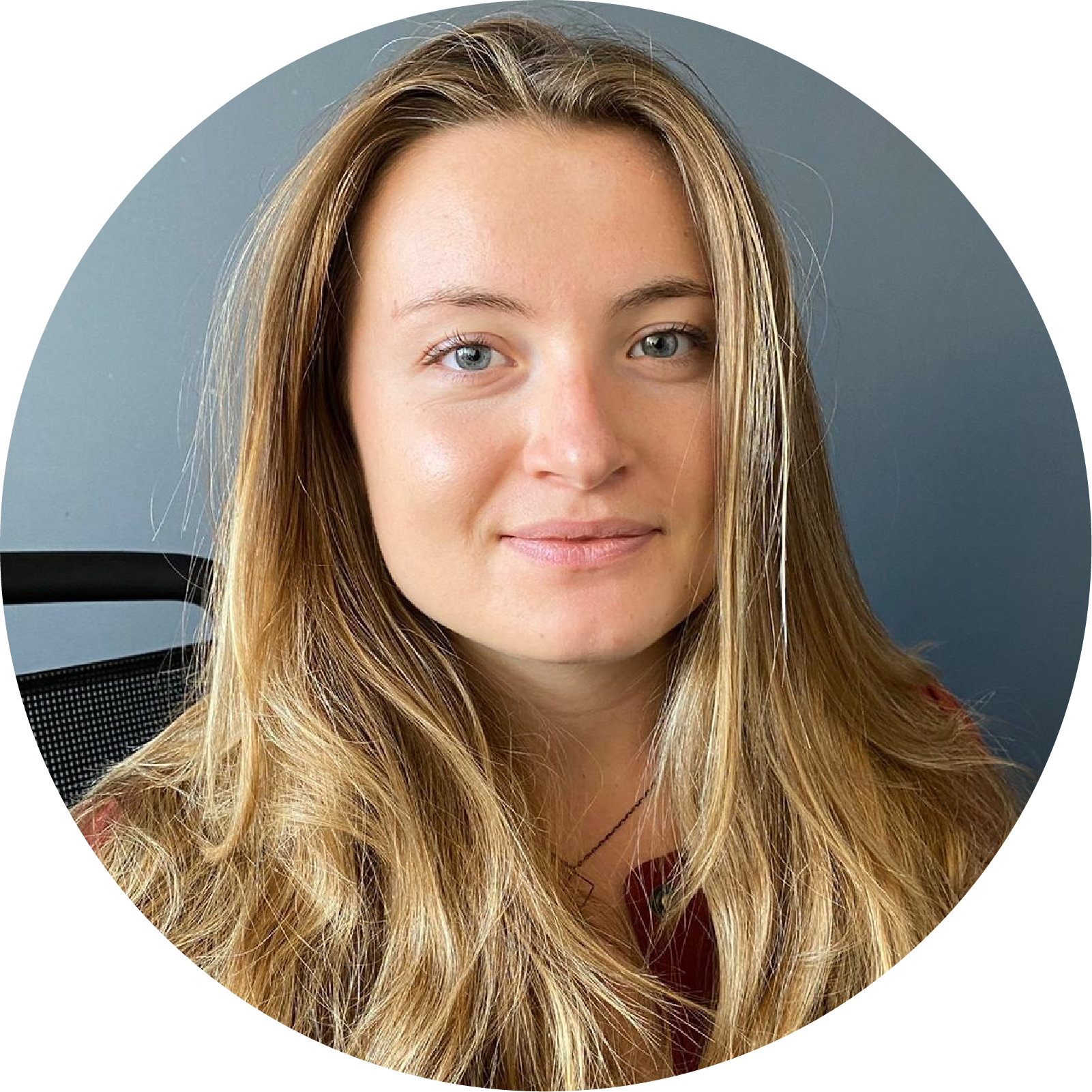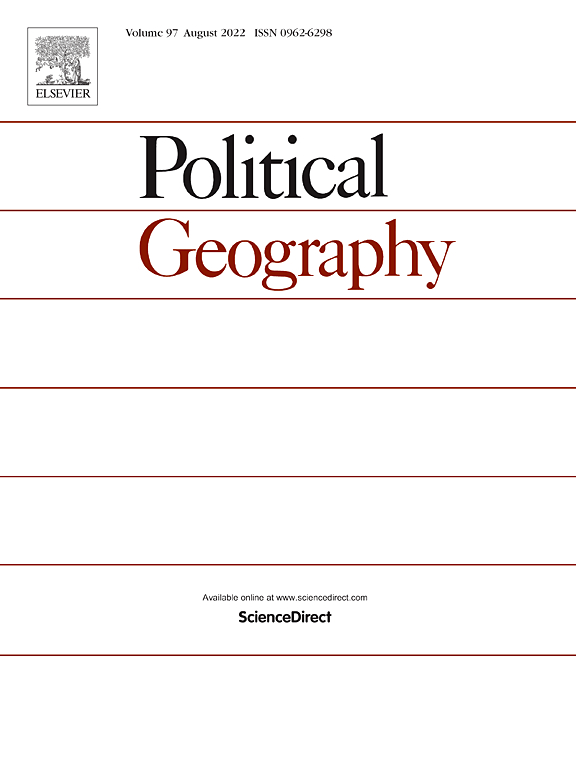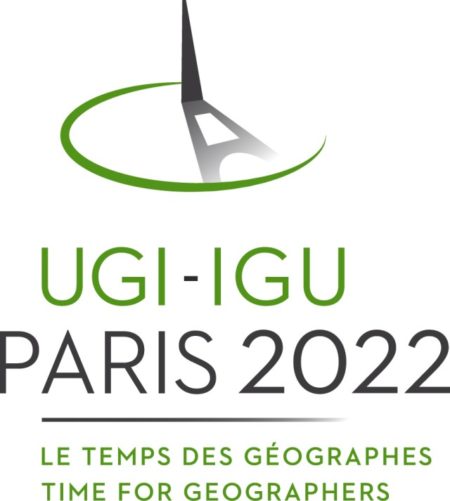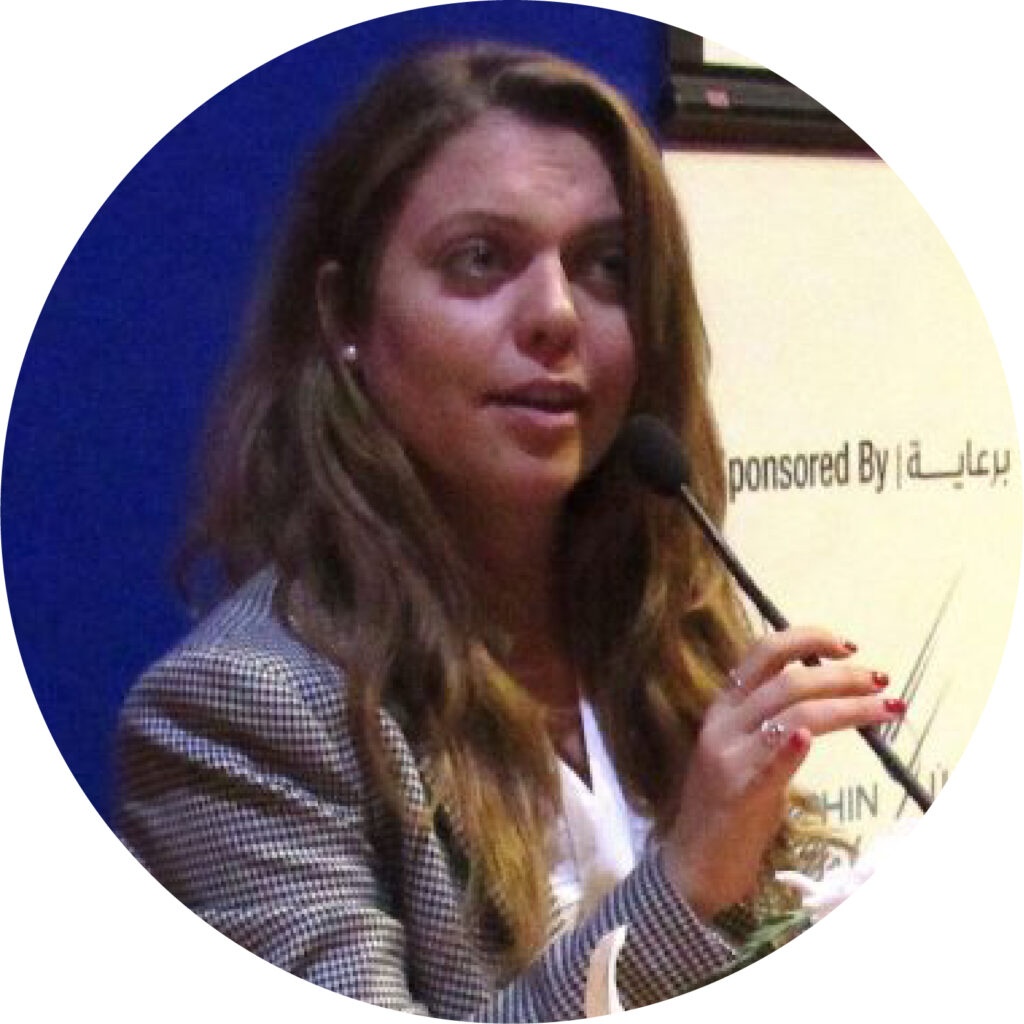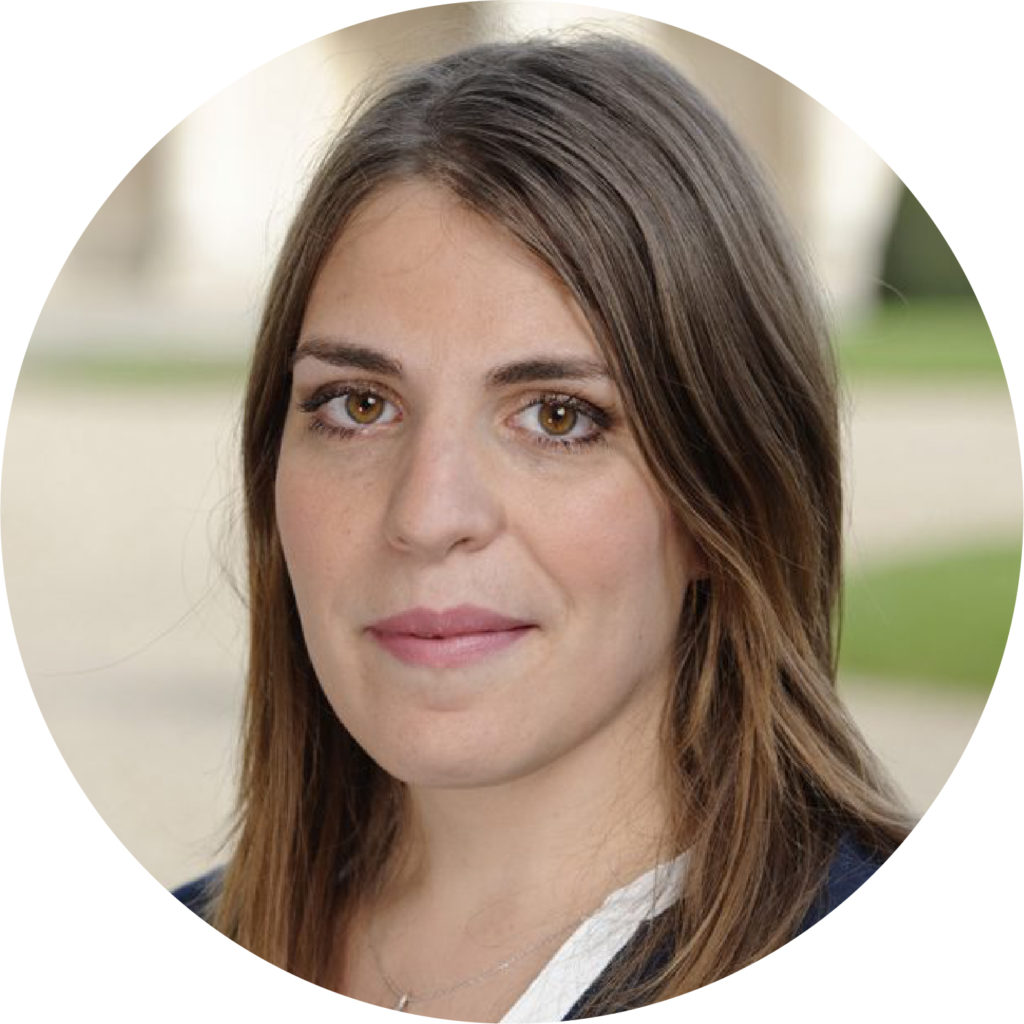Scientific Excellence at the University of Paris 8.
Frédérick Douzet won a prestigious European Research Council (ERC) Advanced Fellowship and its €2.5 million grant.
Frédérick Douzet, Professor at the French Institute of Geopolitics at the University of Paris 8 and Director of the GEODE Center (Geopolitics of the Datasphere) has just obtained an ERC grant in the Advanced category for her DATAROUTES project, which aims to map Internet routes and their manipulation for strategic purposes. This research funding program is one of the most prestigious and competitive in the European Union (EU). For the first time, the award recognizes the excellence of research in humanities and social sciences conducted at the University of Paris 8.
Frédérick Douzet was delighted at the announcement of the results: “I am very pleased to be awarded this grant. It will enable me to carry out an ambitious research project that is fully in line with the tradition of innovation and experimentation in social sciences at the University of Paris 8. This project tops nearly 10 years of investment in building a challenging interdisciplinary conversation at the French Institute of Geopolitics and the GEODE project, which I lead. I would like to warmly thank my entire team for their unwavering support, but also the many colleagues, friends and staff in the administration of Paris 8 who helped me prepare this great project and train for the interview.”
Annick Allaigre, President of the University of Paris 8, welcomes the performance of Frédérick Douzet, who wins the first ERC grant of the University Paris 8 with this project particularly relevant given the international context. This success is the result of her tireless work and ability to lead a first class team. It also reflects the quality of the support provided by the research services for very high-level projects and rewards a resolute policy of support for research.
Arnaud Regnauld, Vice-President of Research at the University of Paris 8 adds: “The DATAROUTES project is the continuation of an ambitious scientific dynamic at “Geopolitics of the Datasphere” (GEODE), a project developed by the IFGLab. This ERC grant is a recognition of the work undertaken by Frédérick Douzet and her team and a testament to the excellence and influence of this laboratory in exploratory research at an international scale.”
Understanding how states and non-state actors shape cyberspace by seeking to control the routes taken by digital data
The Internet has been able to develop very rapidly in most countries thanks to its highly decentralized nature. Its resilience is based on a multiplicity of different routes that allow data to always bypass a blocking or partial destruction of the network by alternative paths. This model is now being challenged by two major developing dynamics. On the one hand, some states, in the name of national security, seek to re-establish control over borders of what they regard as their national cyberspace, creating fragmentation along state borders. On the other hand, at a higher level of abstraction, another dynamic can be observed. Driven by market forces, this dynamic consists in the concentration of data traffic around a few major data transport players and a few large platforms, such as GAFAMs. Largely invisible, this concentration also leads to a form of fragmentation along commercial lines.
These developments raise major questions in terms of the stability and resilience of the Internet, the free movement of data and human rights. The DATAROUTES project aims to map the paths taken by digital data to understand how and with what consequences the control strategies of actors shape cyberspace, and analyze the major issues in terms of security and public policies for the European Union.
Acknowledging the scientific excellence of the research carried out at the University Paris 8.
The ERC Advanced Scholarship program is part of the Horizon Europe program. These scholarships reward researchers who are experienced and recognized in their field at the national and international levels. They make it possible to carry out ambitious and innovative high-risk projects that can lead to notable scientific advances. The funded projects each benefit from a maximum budget of 2.5 million euros over five years. Out of 1,650 applications received, the ERC picked 218 winners in the Advanced category this year, i.e., a success rate of 13.2%. With 32 winning projects, France ranks third among the 20 European countries represented, behind Germany and the United Kingdom.
The DATAROUTES project will allow the recruitment of several doctoral and post-doctoral students and research engineers who will be hosted at the Condorcet Campus, of which Paris 8 University is a member.
Frédérick Douzet’s work has been recognized by the Institut Universitaire de France (IUF) and is part of the innovative research carried out within the GEODE project, which was labeled in 2020 “Center of Excellence International Relations and Strategy” by the Ministry of the Armed Forces and has received funding from the William and Flora Hewlett Foundation. This scholarship also rewards the teams of the French Institute of Geopolitics at the University of Paris 8 to which the GEODE center is attached. Finally, it testifies to the vitality and the need for interdisciplinary research in humanities and social sciences undertaken within the University of Paris 8 to advance knowledge.
> Download the press release <<
